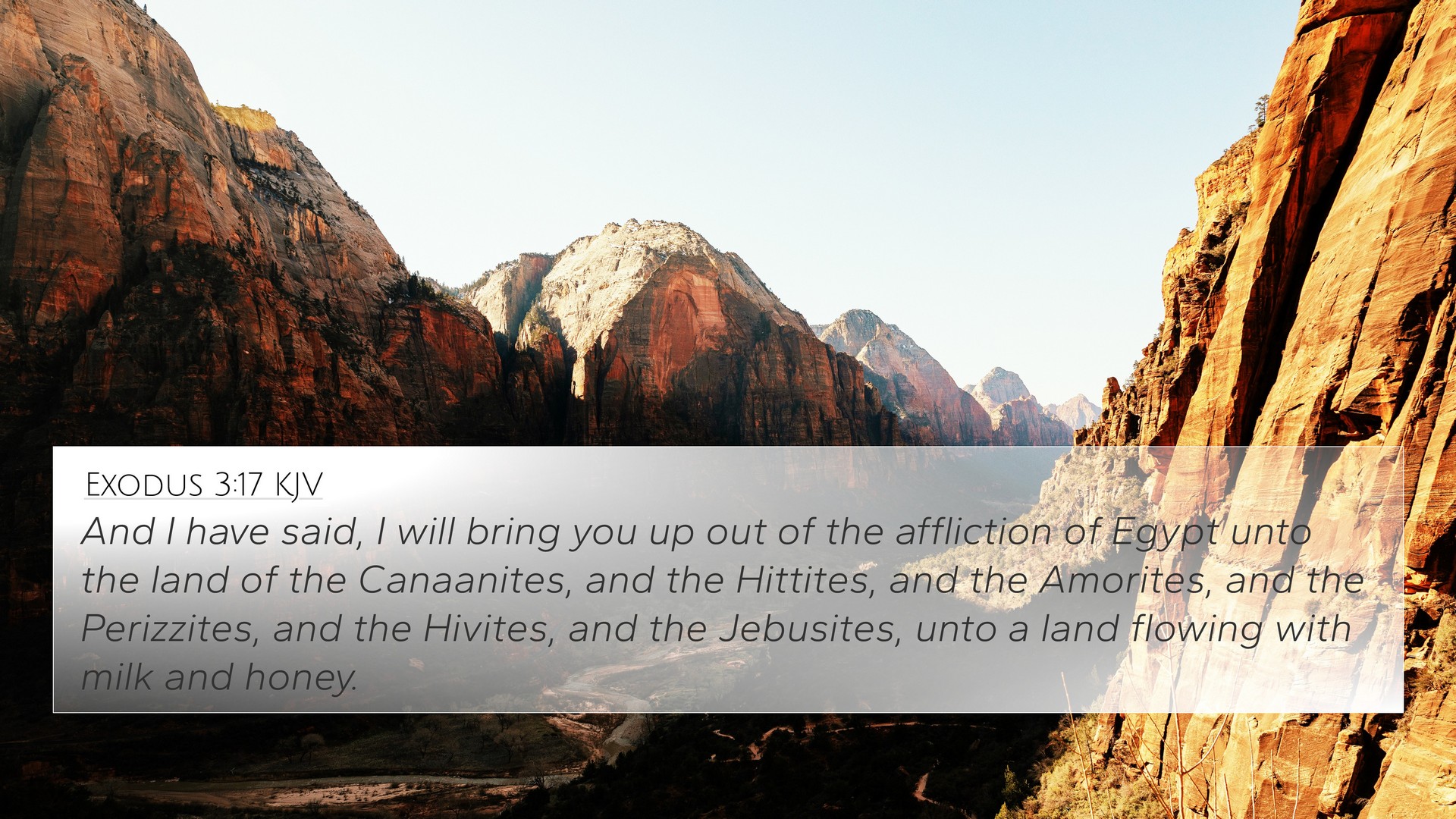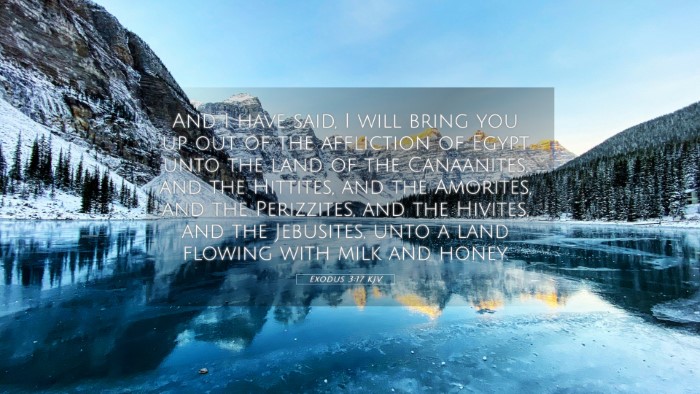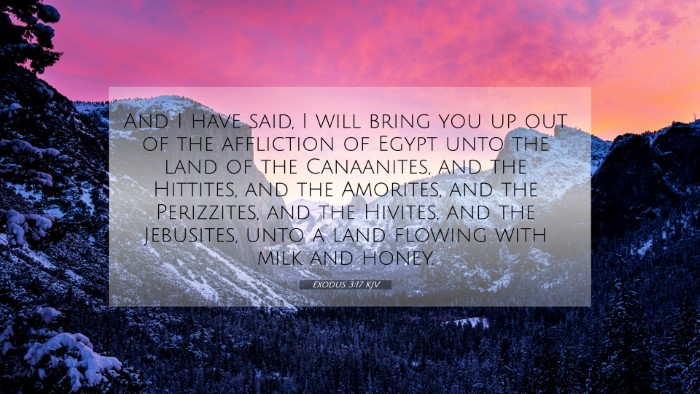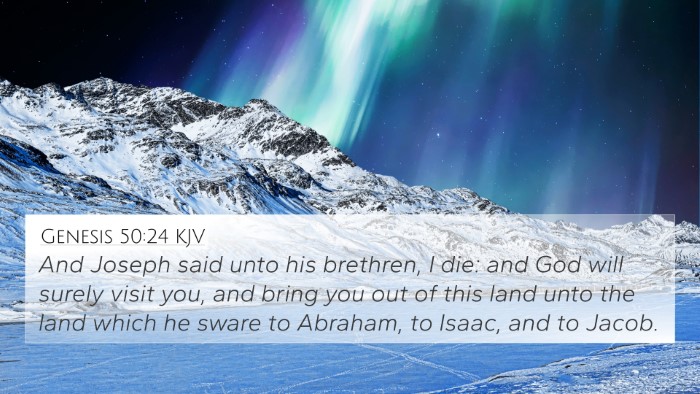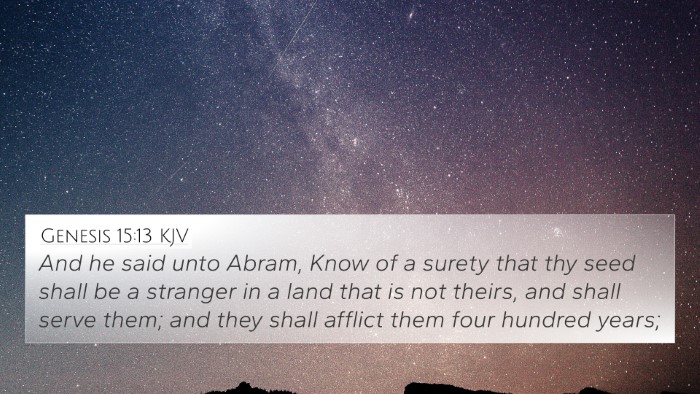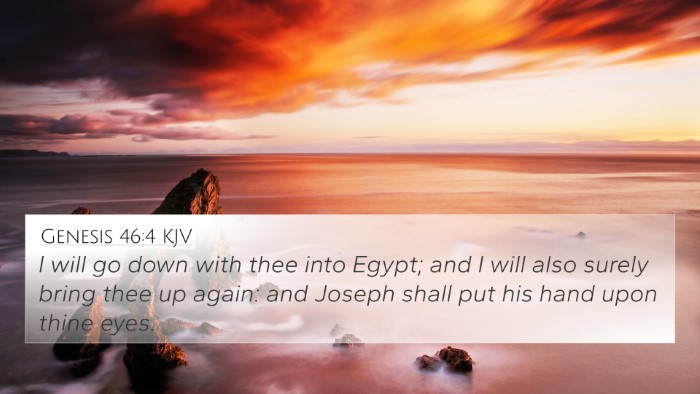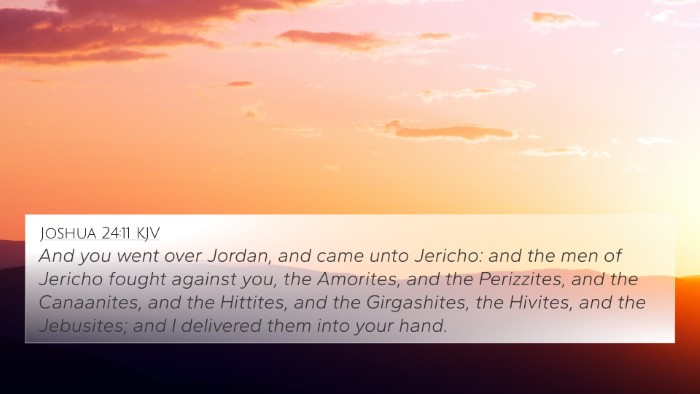Understanding Exodus 3:17
Exodus 3:17 states: "And I have said, I will bring you up out of the affliction of Egypt unto the land of the Canaanites, and the Hittites, and the Amorites, and the Perizzites, and the Hivites, and the Jebusites, unto a land flowing with milk and honey." This verse captures God's promise of deliverance and the hope of a better future for the Israelites. The underlying message is one of divine assurance and the fulfillment of a covenantal promise.
Significance of the Promise
The assurance from God to the Israelites reflects His compassion and the unwavering commitment to His promises. Matthew Henry emphasizes that God's call to Moses heralds a transformative journey from oppression to prosperity. It establishes a foundation for faith among the people, reiterating that God hears the cries of His followers.
God's Assurance of Deliverance
Albert Barnes highlights the significance of the phrase "bring you up out of the affliction of Egypt." It signifies not merely an escape from slavery but the beginning of a covenant relationship where God actively leads His people to a geophysical and spiritual restoration.
The Land Flowing with Milk and Honey
The description of the Promised Land as "flowing with milk and honey" symbolizes abundance and divine blessing. Adam Clarke notes that this imagery represents the richness of God's provision, where the land is contrasted with Egypt's barrenness. It's symbolic of hope and increased faith amidst trials.
Connections and Cross-References
This verse connects to several other biblical texts, emphasizing the themes of deliverance and God's covenant promise:
- Genesis 12:1-3: God's promise to Abraham about his descendants' future.
- Exodus 6:6-8: God reiterates His covenant, stressing freedom and inheritance.
- Deuteronomy 6:10-11: A reminder of God's provision in the Promised Land.
- Joshua 1:2-4: The fulfillment of entering the Promised Land.
- Psalms 107:1-7: Reflects on God's mercy and action in delivering the oppressed.
- Hebrews 11:9-10: Faith in God's promises as Abraham's journey parallels the Exodus.
- 1 Corinthians 10:1-4: The New Testament understanding of spiritual nourishment from God's provision.
Inter-Biblical Dialogue
The thematic connections formed in Exodus 3:17 are foundational for understanding the broader narrative of scripture. They encourage comparison among various texts, illustrating the continuity of God's relationship with humanity across both Testaments. Such inter-biblical dialogue enriches our understanding of sin, redemption, and divine promise.
Tools for Bible Cross-Referencing
To explore these connections further, various tools can enhance your Bible study experience:
- Bible concordances for locating scriptures.
- Cross-reference Bible study guides for thematic searches.
- Comprehensive Bible cross-reference materials for in-depth study.
Conclusion
Exodus 3:17 stands as a powerful testament to God's promise of deliverance and abundance. By understanding this verse and its connections, readers can appreciate the depth of scripture and the overarching narrative of hope and covenant in the Bible. As one engages in cross-referencing, it reveals the multifaceted nature of God's dealings with humanity, which can be a source of inspiration and faith in understanding the biblical text.
Further Reflections
Consider what this promise means for individual faith journeys today. How can the assurance of deliverance remind you of God's active presence amid challenges? Reflect upon God's divine guidance as a constant throughout history, providing hope and direction.
